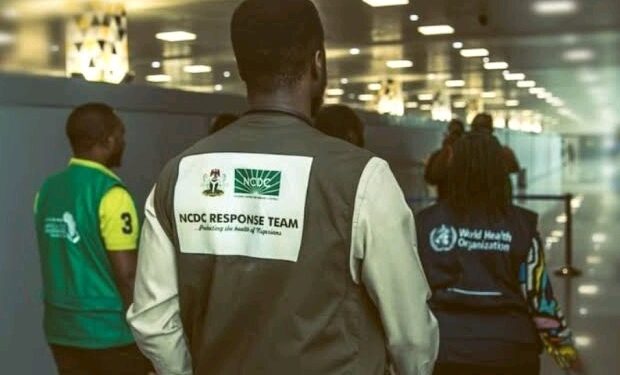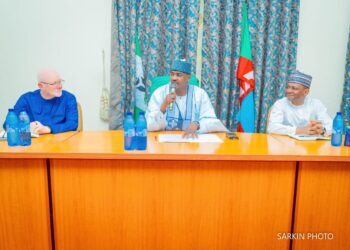The Nigeria Centre for Disease Control and Prevention (NCDC) has raised concern over the rising incidences of infectious diseases across the country.
The NCDC particularly raised concern about cholera, Lassa fever, and emerging global threats such as the marburg virus outbreak in Rwanda.
During a news conference on Thursday in Abuja, the Director-General of the NCDC, Dr Jide Idris, reaffirmed the agency’s commitment to protecting public health.
Idris urged Nigerians to remain vigilant and proactive in preventing the spread of these diseases.
“Our gathering today highlights the NCDC’s unwavering dedication to safeguarding the health of Nigerians.
“In recent months, we have been actively managing a range of infectious diseases, including cholera, yellow fever, diphtheria, and Mpox.
Additionally, we are monitoring the global outbreak of marburg virus in Rwanda,” Idris said.
He said that cholera remained a significant public health challenge, especially in states affected by flooding and poor water and sanitation infrastructure.
“As of October 13, Nigeria has reported 14,237 cases of cholera across 35 states, resulting in 378 deaths, a case fatality rate of 2.7 per cent.
“Northern states, including Borno, Adamawa, Jigawa, Yobe, and Kano, have been identified as the epicenters of the outbreak,” he said.
He expressed particular concern over the rapid spread of cholera among children under the age of five, attributing the rise in cases to heavy rainfall and flooding in vulnerable areas.
“This year’s cholera outbreak has more than doubled compared to the same period last year.
“Our response includes deploying rapid response teams to affected areas and conducting reactive cholera vaccinations in internally displaced persons (IDP) camps,” he said.
On Lassa fever and Cerebrospinal Meningitis (CSM), Idris said that with the onset of the dry season, the NCDC was intensifying preparedness efforts.
He said that Nigeria has recorded 1,018 confirmed cases of Lassa fever and 172 deaths since January.
He said that new cases were still emerging, adding that the NCDC was working to enhance early detection, case management and the stockpiling of essential supplies.
“Training for healthcare workers, especially in managing kidney failure, a major cause of death from Lassa fever, is ongoing.
“We have also installed dialysis machines at treatment centers to reduce mortality rates,” he said.
On the global front, he addressed the marburg virus outbreak in Rwanda which has claimed 15 lives so far.
He said that Nigeria had strengthened surveillance at points of entry and activated health declaration forms for travelers.
“While there is no specific treatment for marburg, we have identified isolation centers and are stockpiling medical supplies to respond if any cases are detected in Nigeria,” he said.
He urged Nigerians traveling to affected regions to avoid contact with wild animals, particularly fruit bats.
He advised them to seek immediate medical attention if symptoms such as high fever, headache, or unexplained bleeding occurred.
He also called on all Nigerians to take proactive measures to prevent the spread of infectious diseases by practicing handwashing, maintaining food hygiene, and seeking timely medical care.
Additionally, he encouraged state governments to improve disease reporting to enable timely interventions and effective resource allocation.
“We need a collective effort to raise our commitment, intensify efforts, and ensure adherence to public health advisories, not just during outbreaks, but beyond,” he said.
He said that the NCDC, in partnership with local and international organisations, continued to lead the fight against public health threats, working towards a healthier and more resilient Nigeria.(NAN)











